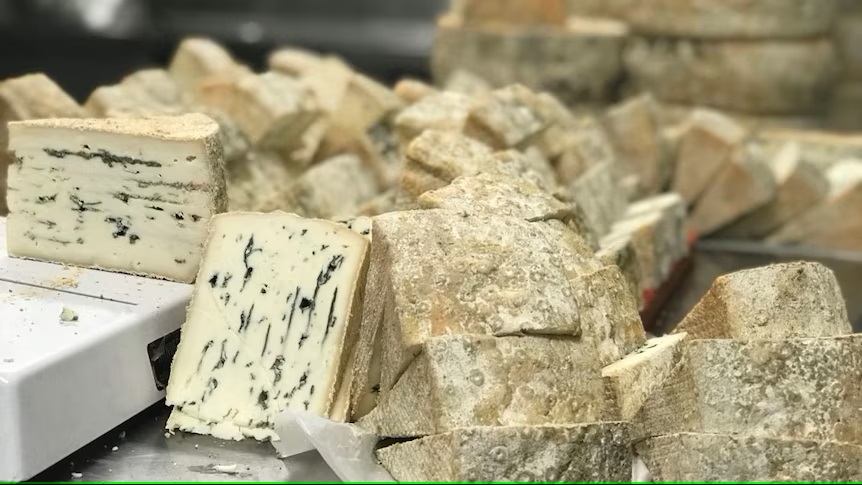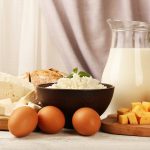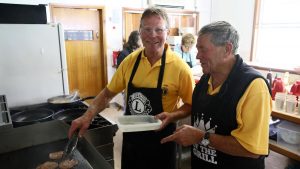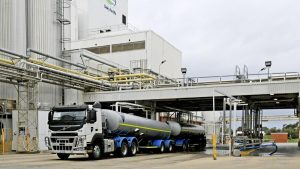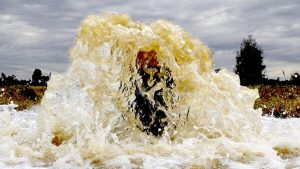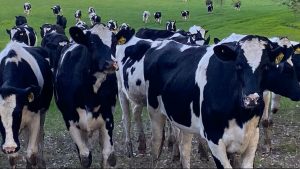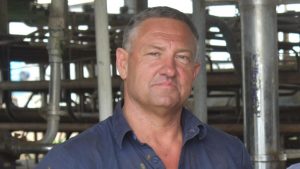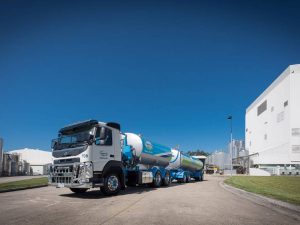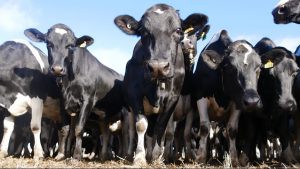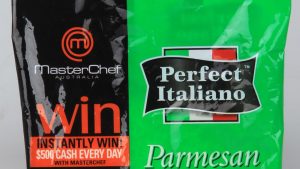
In short:
Imported dairy products are weakening the local industry, according to dairy farmers and processors.
Australia imports high levels of cheese from New Zealand, the European Union and the United States.
What’s next?
US President Donald Trump’s tariffs could impact on international dairy supply chains.
Australian farmers say the industry is struggling to compete with a flood of cheaper, imported dairy products as production costs remain high and consumers seek out more affordable options.
About a quarter of all dairy products consumed in Australia are imported, particularly cheese and butter.
That is despite Australian dairy farmers producing 387,000 tonnes of cheese alone last financial year.
Rabobank senior dairy analyst Michael Harvey said Australia imported many dairy products despite having a large domestic industry.
Cost-of-living pressure is driving consumers to opt for discounted products. (ABC Rural: Selina Green)
“We do see a lot of cheese coming in for manufacturing or for ingredients so quite a lot of cheese from New Zealand and even from the US to service food service channels, sometimes grocery channels,” Mr Harvey said.
Mr Harvey said it had been a long-term trend while Australia’s milk supply had declined.
“But also … price is important as well,” he said.
“When there’s a supply gap and it makes economic sense to import product that’s affordable, you will do that.”
There are more options than ever for Australian dairy consumers on supermarket shelves. (ABC Rural: Selina Green)
In a statement, a Woolworths spokesperson said the company was committed to supporting Australian farmers.
They said a majority of Woolworths dairy products were from Australia.
“We’re focused on offering our customers choice and ensuring that country of origin is clearly labelled on all our dairy products to help customers make informed choices,” the spokesperson said.
“We believe our current approach balances these considerations while continuing to support Australian dairy producers.”
A Coles spokesperson said they were proud to have long-standing relationships with more than 100 Australian dairy farmers.
“The majority of the cheeses we sell at Coles are proudly produced in Australia by our dairy suppliers,” they said.
“In fact, more than 80 per cent of our everyday cheese, a staple for many Aussies, sold at Coles is made in Australia from Australian milk.”
‘Huge concern’
Australian Dairy Products Federation chief executive Janine Waller said the growing volume of imported dairy products was a huge concern for the processing industry.
“Australians have gradually been eating more and more cheaper imported dairy products, and if I look back over last year, one in four products that were consumed are coming from imported products,” Ms Waller said.
Janine Waller says consumers are making choices based on price. (Supplied)
“The challenge is that they’re well established.”
She said cost-of-living pressure on consumers was a big challenge to overcome.
“They are tending to go towards the private label, the discounted products and while their best intent is to obviously be buying Australian products, sometimes they can’t or they’re not able to distinguish between an imported product when it’s sitting on shelf in green and gold packaging,” Ms Waller said.
Ms Waller said rising production costs made it hard for Australian products to compete price-wise.
“The previous three years we’ve been paying more for raw ingredients for materials than what’s happening from an international perspective, and that’s obviously invited a flood of cheaper imported dairy products into our supermarket shelves,” she said.
Australian dairy output has shrank over the past decade. (ABC News: Olivia Sanders)
Ms Waller called on the government to address the issue as a matter of “food security”.
“China’s had a huge push around how do they make sure that they’re self-sufficient as a country … so we’re really looking for our government to do the same thing,” she said.
“How do we actually work with the government and farmers and processes side-by-side to really have a strong and vibrant industry?
“We need to make sure that we’ve got secure, domestic supply, efficient processing capacity, really creating value in our dairy, and obviously protecting against imports.”
Ben Bennett says imports are affecting dairy production. (Supplied: Australian Dairy Farmers)
Australian Dairy Farmers president Ben Bennett said domestic dairy production had declined as Australia had shifted to become a net dairy importer.
“It’s completely undermining our supply and demand system within our country,” Mr Bennett said.
“Every time it looks like we’re about to make a dollar, then they go off and import tens of thousands of tonnes of dairy, so we just get pushed down.”
Too soon to know tariff impacts
While Mr Harvey said any potential tariffs could further shift the international dairy trade, it would likely be to a much lesser extent than for other commodities.
“We don’t see this as significantly disruptive, the way it is at the moment,” he said.
Michael Harvey says US tariffs would not be felt as keenly in the dairy industry. (Supplied: Rabobank)
“We actually import quite a bit of dairy from the US into the Australian market, particularly in cheese form, so that’s a trade flow coming the other way.”
While considered a major player in the international dairy markets, the United States exports less than New Zealand or the European Union.
Australia’s major export markets are China, Japan, Singapore, Indonesia and Malaysia.
You can now read the most important #news on #eDairyNews #Whatsapp channels!!!
🇺🇸 eDairy News INGLÊS: https://whatsapp.com/channel/0029VaKsjzGDTkJyIN6hcP1K
